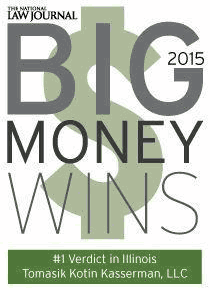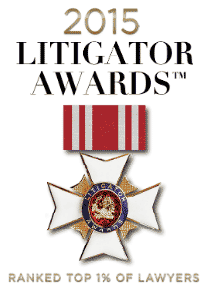Whose Statement is it Anyway?
Nov 14, 2013
 |  |
By Timothy S. Tomasik
Originally Published in the American Bar Association Section of Litigation's Mass Torts Fall 2013 Newsletter.
In high-stakes litigation, loose lips sink ships. Damning admissions from an agent’s mouth can have overwhelming persuasive force to a jury, and the admission or exclusion of an agent’s statement can often mean the difference between victory and defeat.
Federal Rule of Evidence 801(d)(2)(D)
Successfully capturing statements for admission at trial requires lawyers to master Federal Rule of Evidence 801(d)(2)(D). This rule provides that a statement is not hearsay if “the statement is offered against an opposing party and was made by the party’s agent or employee on a matter within the scope of that relationship and while it existed.” Understanding the striking differences in the application of the rule in common-law jurisdictions and in federal courts is paramount to your success—whether you are on offense or defense.
Long ago, many of us were instructed in law school that it was impermissible under common law for a jury to hear a damaging admission of an employee who had no personal knowledge of the facts giving rise to liability or was not authorized to speak on behalf of his or her employer. Courts reasoned that it was unfair to bind the principal with statements of dubious reliability— i.e., watercooler gossip. The approach imposed a nearly impossible burden on proponents seeking admission. Dissatisfaction with unjust outcomes resulted in courts abandoning the old principles in favor of new ones promoting generous admissibility of admissions.
The modern judicial consensus is that Rule 801(d)(2)(D) does not require personal knowledge or the authority to speak on behalf of the principal. Unlike the other rules of evidence, admissions are not based on reliability and do not require personal knowledge. Rather, admissions are a by-product of our adversarial system of justice. 4 Steven A. Saltzburget al., Federal Rules of Evidence Manual § 801.02[6][f][i] (Matthew Bender 10th ed.). The modern application provides that statements by an employee concerning a matter within the scope of his or her employment constitute admissions by his or her employer if the statements are made during the employment relationship. The foundational elements are minimal. See Edward J. Imwinkelreid, Evidentiary Foundations § 10.03[4][a] (Matthew Bender 8th ed. 2012).
Nevertheless, many opponents remain steadfastly wedded to recycling old arguments that such admissions are inadmissible based on the tension in the Federal Rules of Evidence between the personal-knowledge requirement of Rule 602 and Rule 801(d)(2)(D). Mister v. Ne. Ill. Commuter R.R. Corp., 571 F.3d 696 (7th Cir. 2009). On its face, Rule 602 seemingly collides with Rule 801(d)(2)(D). The advisory-committee notes emphasize the rationale behind the liberalized approach to admissibility under Rule 801 by “call[ing] for generous treatment of this avenue of admissibility.” Fed. R. Evid. 801 advisory committee’s note.
Be Prepared to Perfect Your Record at Trial
At trial, it is advantageous to have the court decide outside the presence of the jury pursuant to Rule 104(a) and Rule 801(d)(2)(D) whether the agent’s statement concerned a matter within the scope of the agency. The proponent of the evidence must demonstrate the scope of employment by a preponderance of the evidence. The mere contents of the declarant’s statement standing alone do not establish an agency or employment relationship. “Some” additional proof is required, for example, whether the declarant was wearing his or her employer’s uniform or standing behind a retail counter when the statement was made. Just “some” semblance of agency or employment relationship should suffice for admission.
Statements Classified as Non-Hearsay Do Not Automatically Qualify for Admission
Federal Rule of Evidence 403 provides a viable escape hatch for opponents challenging the admissibility of agents’ statements. Once a trial court determines that a statement is non-hearsay under Rule 801(d)(2)(D), “[t]he question remains whether there are other objections.” Although it may be proper to admit certain statements, it is not improper to find statements unreliable based on the multiple levels of hearsay and lack of precise factual statements pursuant to Rule 403. Mister, 571 F.3d 696.
Yes, Gossiping Employees Can Be Impeached
Of course, an opponent may impeach an agent declarant pursuant to Rule 806. There is one caveat—the usual foundation requirement for prior inconsistent statements under the Federal Rules of Evidence are suspended, and “the court may admit evidence of the declarant’s inconsistent statement or conduct, regardless of when it occurred or whether the declarant had an opportunity to explain or deny it.” Fed. R. Evid. 806.
It’s true—an unwitting blabbermouth can win a plaintiff’s case. By the same measure, failing to properly capture the required foundation, and effectively argue the admission of such statements, can lose your case. The ability to implement Rule 801(d)(2)(D) is a formidable weapon for every trial lawyer.
For a full discussion see “Gossiping Agents and the Hearsay Rule,” Litigation, Vol. 39 No. 2, Spring 2013, at 23–26, Section of Litigation, American Bar Association.
Keywords: litigation, mass torts, FRE 801, FRE, 104, Federal Rules of Evidence
Timothy S. Tomasik is with Tomasik Kotin Kasserman, LLC, in Chicago, Illinois.

 312-605-8800
312-605-8800




 312-605-8808
312-605-8808






